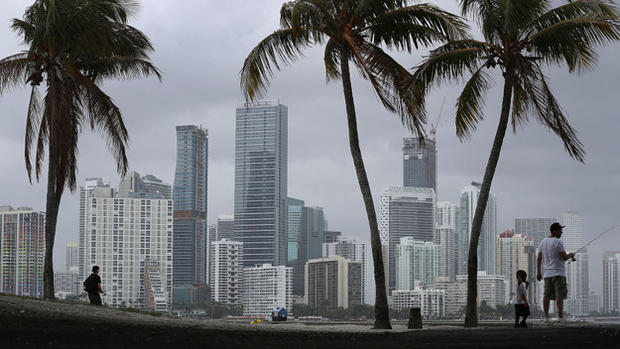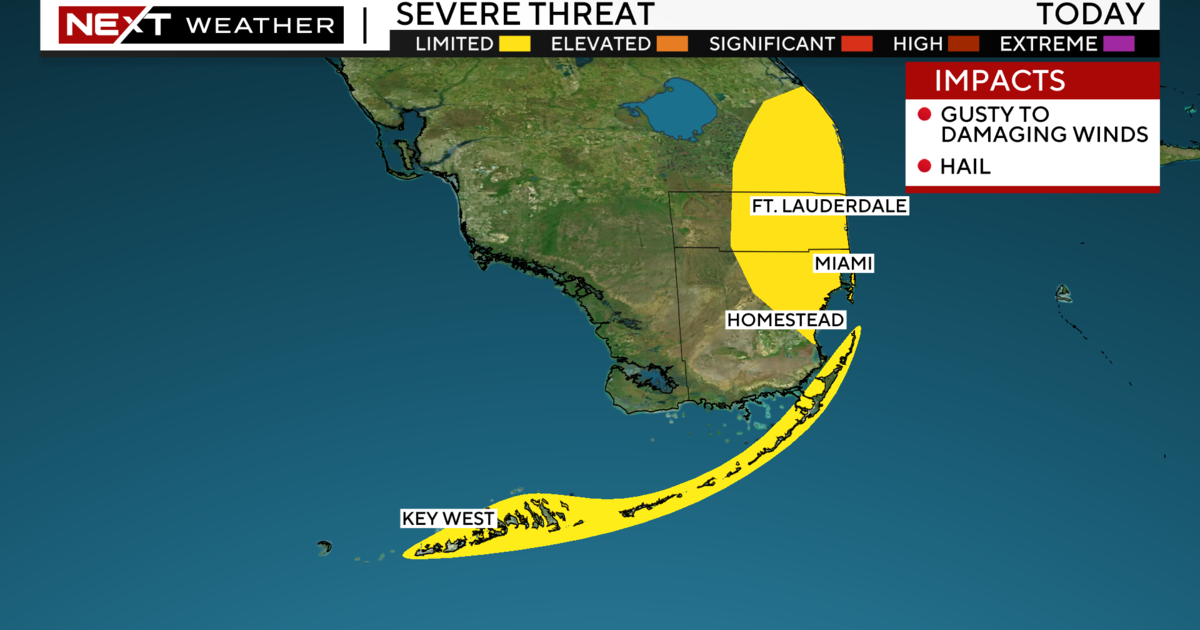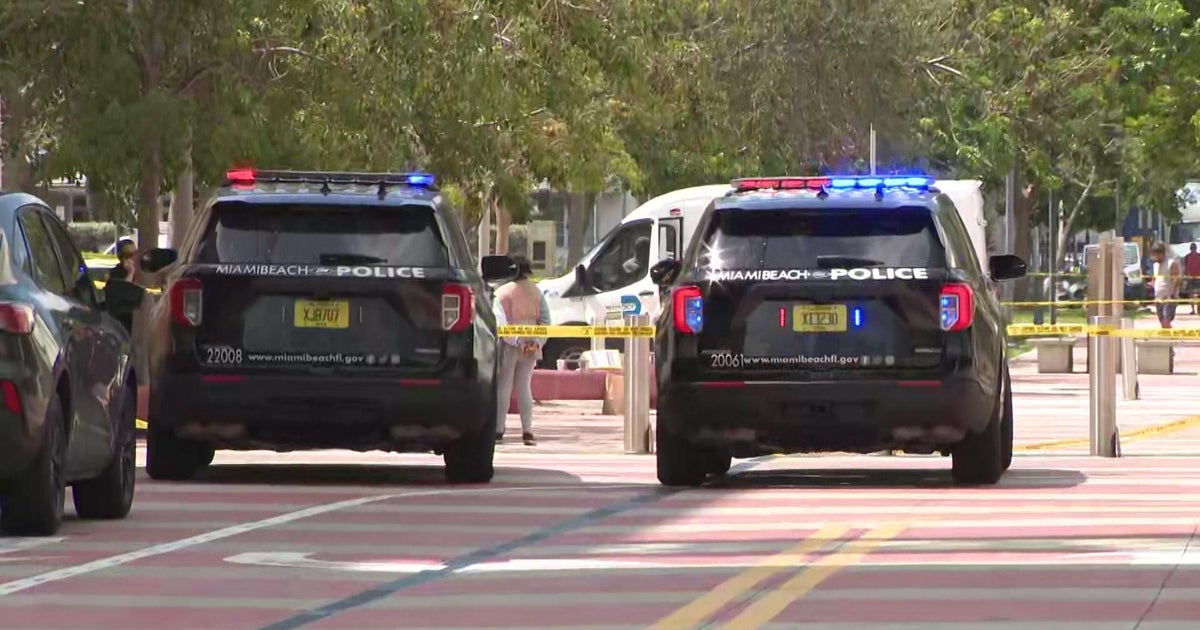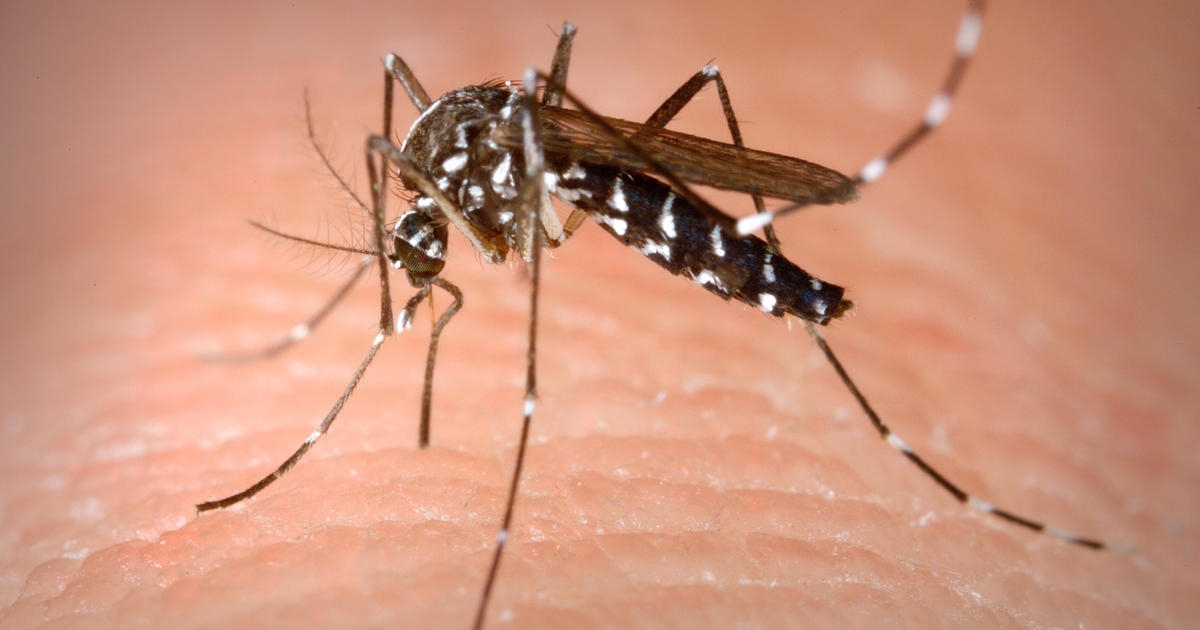Forecast Predicts Busy Atlantic Hurricane Season
Follow CBSMIAMI.COM: Facebook | Twitter
MIAMI (CBSMiami/AP) — Weather forecasters say an Atlantic hurricane season that started off strong shows no signs of slowing down.
The National Oceanic and Atmospheric Administration's updated hurricane season forecast predicts 14 to 19 named storms, with five to nine hurricanes. Two to five hurricanes are expected to be "major" with sustained winds of at least 111 mph.
These numbers are an increase from their prediction in May when they forecast 11 to 17 named storms. Their new numbers also bump up the number of major hurricanes by one.
Gerry Bell of NOAA's Climate Prediction Center said wind patterns and warmer than average water temperatures that can fuel storm development are expected to persist throughout the tropical Atlantic Ocean and Caribbean Sea.
Six tropical storms have formed so far this year, including two that hit the U.S. Forecasters at the National Hurricane Center said Tropical Storm Franklin was nearing hurricane strength Wednesday as it approached Mexico's central Gulf coast.
It's been almost 25 years since Hurricane Andrew struck south of Miami. A new insurance underwriters' analysis says the city's vulnerability to another Category 5 hurricane has grown exponentially.
Andrew's landfall in Florida on Aug. 24, 1992, was the most expensive natural disaster in U.S. history at the time. The hurricane with 165-mph (265-kph) winds caused more than $26 billion in damage in Florida's most-populous areas, including $15.5 billion in insurance payouts.
The reinsurance company Swiss Re released a report Wednesday estimating $80 billion to $100 billion in overall losses if a hurricane similar to Andrew were to follow the same track today. If a similar hurricane targeted Miami directly, Swiss Re estimates losses up to $300 billion.
Andrew caused relatively minor storm surge, but Swiss Re says rising sea levels would exacerbate that flooding.
(TM and © Copyright 2017 CBS Radio Inc. and its relevant subsidiaries. CBS RADIO and EYE Logo TM and Copyright 2017 CBS Broadcasting Inc. Used under license. All Rights Reserved. This material may not be published, broadcast, rewritten, or redistributed. The Associated Press contributed to this report.)




